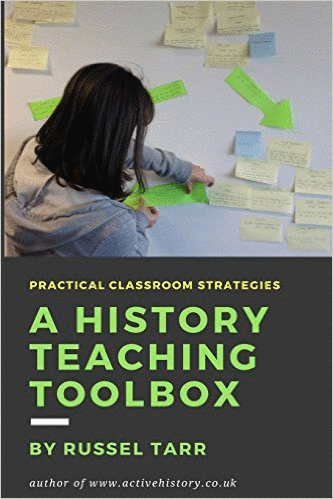Transform your history classroom
ActiveHistory provides educational, award-winning interactive simulations, decision-making games, self-marking quizzes, high-quality worksheets and detailed lesson plans for the school history classroom. All resources have been designed by full-time history teacher Russel Tarr.
An ActiveHistory subscription provides everything you need to construct and deliver a History course from start to finish for the entire 11-18 age range!
These consist not just of lesson plans, worksheets and teacher notes, but also multimedia lectures and interactive games and historical simulations ideal for remote learning and self-study.
World History teaching resources for the high school classroom: lesson plans, worksheets, quizzes and simulation games for KS3, IGCSE, IB and A-Level teachers.
D. The Approach of Historians to the Issue of Causation
You will now learn a bit more about how historians have approached the thorny issue of causation.
Read through this table as a class and tackle the Discussion Points as you go along:
Key Factor |
Timescale |
Big Question |
Concept of Progress |
Details |
|
Whig Historians |
Great Men |
Short Term Factors |
Where have we come from? |
Peaceful, evolutionary progress |
▪ Macauley had two key ideas: |
Marxist Historians |
Economics |
Mid-Term |
Where are we going? |
Violent, revolutionary progress |
▪ Karl Marx said that economic forces dictated the overall strategy of history; individuals just provided the tactics [more] |
Annales Historians |
Geography |
Long-Term |
Are we going anywhere? |
Question whole notion of progress |
▪ Fernand Braudel argues that individuals and even societies are merely short-term ripples on mid-term waves subject to long-term tides [more] |
Questions
1. Try to summarise the essential differences between the three main historiographical schools listed here in no more than 100 words.
2. How would MacAuley, Marx and Braudel each have explained the death of Billy Elliot described earlier?
3. Which of these historiographical schools do you belong most clearly to?
| < Prev |

© 1998-2025 Russel Tarr, ActiveHistory.co.uk Limited (Reg. 6111680)
1 Torrin Drive, Shrewsbury, Shropshire, SY3 6AW, England
Privacy Policy | Contact






